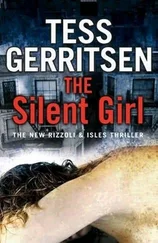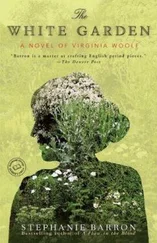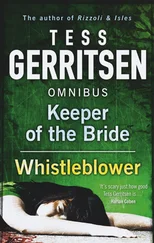Tess Gerritsen - The Bone Garden - A Novel
Здесь есть возможность читать онлайн «Tess Gerritsen - The Bone Garden - A Novel» весь текст электронной книги совершенно бесплатно (целиком полную версию без сокращений). В некоторых случаях можно слушать аудио, скачать через торрент в формате fb2 и присутствует краткое содержание. Город: New York, Год выпуска: 2007, ISBN: 2007, Издательство: Ballantine Books, Жанр: Детектив, на английском языке. Описание произведения, (предисловие) а так же отзывы посетителей доступны на портале библиотеки ЛибКат.
- Название:The Bone Garden: A Novel
- Автор:
- Издательство:Ballantine Books
- Жанр:
- Год:2007
- Город:New York
- ISBN:9780345497604
- Рейтинг книги:3 / 5. Голосов: 1
-
Избранное:Добавить в избранное
- Отзывы:
-
Ваша оценка:
- 60
- 1
- 2
- 3
- 4
- 5
The Bone Garden: A Novel: краткое содержание, описание и аннотация
Предлагаем к чтению аннотацию, описание, краткое содержание или предисловие (зависит от того, что написал сам автор книги «The Bone Garden: A Novel»). Если вы не нашли необходимую информацию о книге — напишите в комментариях, мы постараемся отыскать её.
The Bone Garden: A Novel — читать онлайн бесплатно полную книгу (весь текст) целиком
Ниже представлен текст книги, разбитый по страницам. Система сохранения места последней прочитанной страницы, позволяет с удобством читать онлайн бесплатно книгу «The Bone Garden: A Novel», без необходимости каждый раз заново искать на чём Вы остановились. Поставьте закладку, и сможете в любой момент перейти на страницу, на которой закончили чтение.
Интервал:
Закладка:
— Is Rose Connolly. —
Julia went back into her kitchen and looked out at the garden, at the same plot of land that another woman, long dead, had once gazed upon. Who was buried in my garden all those years?
Was it Rose?
Seventeen
1830
THE LIGHT THROUGH the grimy window had faded to little more than dull pewter. There were never enough candles in the workroom, and Rose could scarcely see her stitches as her needle plunged in and out of white gauze. Already she had completed the underslip of pale pink satin, and on her worktable were the silk roses and ribbons yet to be added to the shoulders and the waist. It was a fine gown meant for a ball, and as Rose worked, she imagined how the skirt would rustle when its wearer stepped onto the dance floor, how the satin ribbons would gleam by candlelight at the supper table. There would be wine punch in crystal cups, and creamed oysters and ginger cakes, and you could eat your fill and no one would leave hungry. Though she would never know such an evening, this gown would, and with every stitch she added some small part of herself, a trace of Rose Connolly that would linger among these folds of satin and gauze to swirl in the ballroom.
The light through the window was barely a gleam now, and she struggled to see the thread. Someday, she would look like the other women sewing in this room, their eyes fixed in perpetual squints, their fingers callused and scarred from repeated needle pricks. Even when they stood at the end of the day, their backs remained stooped, as though they were incapable of ever again standing tall.
The needle lanced Rose's finger and she gasped, dropping the gauze on the worktable. She brought her throbbing finger to her mouth and tasted blood, but it was not the pain that vexed her; rather, she was worried that she had stained the white gauze. Holding up the fabric to catch every feeble ray of light, she could just make out, in the fold of the seam, a dark fleck so tiny that it would certainly not be noticed by anyone else. Both my stitches and my blood, she thought, I leave on this gown.
— That will be enough for today, ladies, — the foreman announced.
Rose folded the pieces she had worked on, set them on the table for the next day's labors, and joined the line of women waiting to collect their pay for the week. As they all pulled on cloaks and shawls for the cold walk home, Rose saw a few goodbye waves, a halfhearted nod in her direction. They did not yet know her well, nor did they know how long she would remain among them. Too many other girls had come and gone, and too many other efforts at friendship had gone to waste. So the women watched and waited, sensing perhaps that Rose was not one who would last.
— You, girl! Rose, isn't it? I need a word with you. —
Heart sinking, Rose turned to face the foreman. What criticism would Mr. Smibart have of her today? For surely there would be criticism, delivered in that annoyingly nasal voice that made the other seamstresses giggle behind his back.
— Yes, Mr. Smibart? — she asked.
— It has happened again, — he said. — And it cannot be tolerated. —
— I'm sorry, but I don't know what I've done wrong. If my work's unsatisfactory —
— Your work is perfectly adequate. —
Coming from Mr. Smibart, perfectly adequate was a compliment, and she allowed herself a quiet sigh of relief that, for the moment, her employment here was not in jeopardy.
— It's the other matter, — he said. — I cannot have outsiders disturbing me, inquiring about matters that you should deal with on your own time. Tell your friends you are here to work . —
Now she understood. — I'm sorry, sir. Last week, I told Billy not to come here, and I thought he understood. But he has a child's mind, and he doesn't understand. I'll explain it to him again. —
— It wasn't the boy this time. It was a man. —
Rose went very still. — Which man? — she asked quietly.
— You think I have time to ask the name of every fellow who comes sniffing after my girls? Some beady-eyed fellow, asking all sorts of questions about you. —
— What sort of questions? —
— Where you live, who your friends are. As if I'm your private secretary! This is a business, Miss Connolly, and I will not tolerate such interruptions. —
— I'm sorry, — she murmured.
— You keep saying that, yet the problem remains. No more visitors. —
— Yes, sir, — she said meekly and turned to leave.
— I expect you to deal with him. Whoever he is. —
Whoever he is .
She shivered as she fought the piercing wind that whipped her skirts and numbed her face. On this cold evening, not even the dogs were about, and she walked alone, the last of the women to leave the building. It must be that horrid Mr. Pratt from the Night Watch asking about me, she thought. So far she'd managed to avoid him, but Billy had told her the man was inquiring about her around town, and all because she had dared to pawn Aurnia's locket. How had such a valuable piece of jewelry ended up in Rose's hands when it should have gone to the dead woman's husband?
The fuss is all Eben's doing, thought Rose. I accused him of attacking me so he retaliates by accusing me of being a thief. And of course, the Night Watch believes Eben, because all Irish are thieves.
She moved deeper into the warren of tenements, shoes cracking through ice into stinking puddles, the streets funneling into narrow alleys, as though South Boston itself were closing in around her. At last, she reached the door with the low arch and the stoop where the refuse from various suppers, bones gnawed clean, bread black with mold, lay awaiting the attentions of some starving dog desperate enough to eat a putrid meal.
Rose knocked on the door.
It was opened by a child with filthy cheeks, his blond hair hanging like a ragged curtain over his eyes. He could not be much older than four, and he stood mutely staring at the visitor.
A woman's voice yelled: — Fer God's sake, Conn, the cold's gettin' in! Shut the door! —
The silent boy scuttled off into some dark corner as Rose stepped in, closing the door against the wind. It took a moment for her eyes to adjust to the dimness of the low-ceilinged room, but little by little she began to make out the shapes. The chair by the hearth, where the fire had burned down to mere coals. The table with its stacked bowls. And all around her, the moving shapes of little heads. So many children. Rose counted eight at least, but surely there were others that she could not see, curled up sleeping in the shadowy corners.
— You brought your payment for the week? —
Rose focused on the enormous woman seated in the chair. Now that her eyes had adjusted, Rose could see Hepzibah's face, with its bulging double chin. Does she never leave that chair? Rose wondered. No matter what time of day or night Rose visited this grim address, she'd always found Hepzibah sitting like a fat queen in her throne, her little charges crawling about her feet like grimy supplicants.
— I've brought the money, — said Rose, and she placed half her week's pay in Hepzibah's waiting hand.
— I just fed 'er. A greedy girl, that one, 'bout emptied me breast with just a few sucks. Drinks more than any babe I've nursed. I should charge you more for her. —
Rose knelt to lift her niece from the basket and thought: My sweet baby, how happy I am to see you! Little Meggie stared up at her, and Rose was sure that her tiny lips curled into a smile of recognition. Oh yes, you know me, don't you? You know I'm the one who loves you.
There were no other chairs in the room, so Rose sat down on the filthy floor, among toddlers waiting for mothers to return from work and rescue them from Hepzibah's indifferent supervision. If only I could afford better for you, dear Meggie, she thought as she coaxed coos from her niece. If only I could take you home to a snug, clean room where I could set your cradle by my bed. But the room on Fishery Alley where Rose slept, a room she shared with twelve other lodgers, was even more grim, infested with rats and foul with disease. Meggie must never be exposed to such a place. Far better that she stay here with Hepzibah, whose fat breasts never ran dry. Here at least she'd be warm and fed. As long as Rose could keep the money coming.
Читать дальшеИнтервал:
Закладка:
Похожие книги на «The Bone Garden: A Novel»
Представляем Вашему вниманию похожие книги на «The Bone Garden: A Novel» списком для выбора. Мы отобрали схожую по названию и смыслу литературу в надежде предоставить читателям больше вариантов отыскать новые, интересные, ещё непрочитанные произведения.
Обсуждение, отзывы о книге «The Bone Garden: A Novel» и просто собственные мнения читателей. Оставьте ваши комментарии, напишите, что Вы думаете о произведении, его смысле или главных героях. Укажите что конкретно понравилось, а что нет, и почему Вы так считаете.












